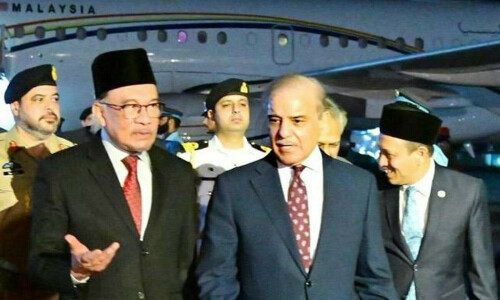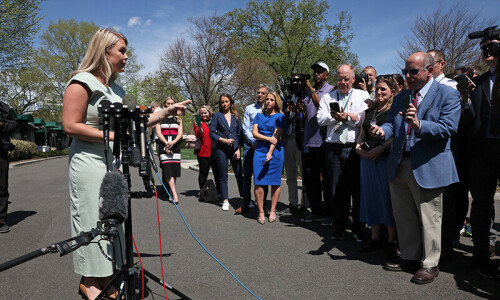ISLAMABAD: Though Pakistan has made progress to keep its new generation away from the hazards of tobacco, the decision to introduce a third tier of taxation on cigarettes has become a matter of embarrassment for the health sector.
“A report presented in the ‘17th world conference on tobacco or health uniting the world for a tobacco free generation’ held last week in Cape Town, South Africa, shows that though Pakistan had improved a lot the decision to decrease the tax was a matter of embracement for us,” head of the Network for Consumer Protection Nadeem Iqbal told Dawn.
He said the report, available with Dawn, states that Pakistan had improved in terms of media campaign against tobacco.
The country has a comprehensive tobacco control programme and even the target audience is contacted and surveys are held besides many other improvements.
“However, the thing which embarrassed us is that according to the World Health Organisation (WHO), the excise tax should be minimum 70pc of the retail price of the cigarettes but in Pakistan it is just 45.79pc. It would not have happened had the government not introduced the third tier of taxation on cigarettes in the current budget,” said Mr Iqbal, who attended the conference.
Before the announcement of the current financial year’s budget, the Ministry of National Health Services (NHS) had suggested increasing the tax on cigarettes to Rs44 (for a pack of 20 cigarettes).
But the third tier was introduced due to which the tax got reduced to as low as Rs16 (for a pack of 20 cigarettes).
The report adds that tobacco harms the health and treasury of Pakistan. Every year, over 160,100 of the people in the country are killed by tobacco-caused diseases. Still, more than 125,000 children (10-14 years old) and 14.73 million adults (15+ years old) continue using tobacco each day.
Mr Iqbal said the tobacco industry was influential across the globe and dictated some governments but the decision to introduce the third tier of taxation had created an impression that Pakistan’s tobacco industry was more influential than in other countries of the region.
An official of the ministry of NHS, requesting not to be quoted, agreed that the report was embracing for the health departments but claimed that efforts would be made to convince the decision makers to allow steps to decrease the use of tobacco.
Published in Dawn, March 18th, 2018














































